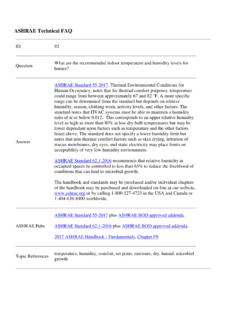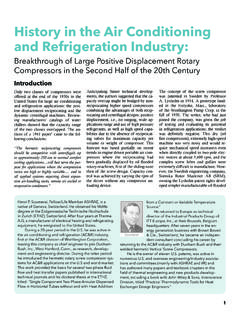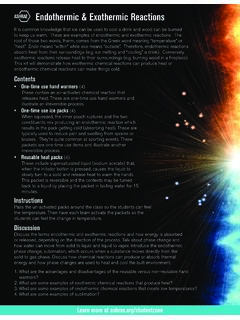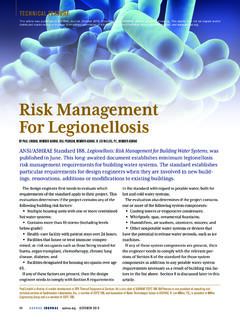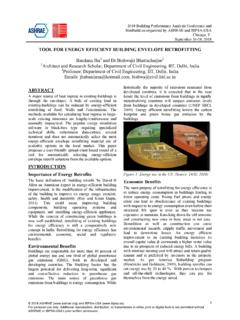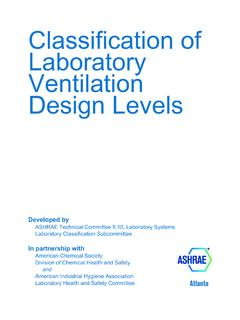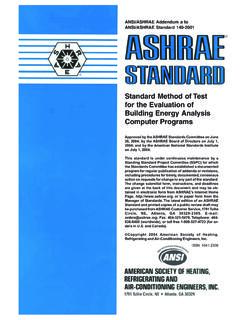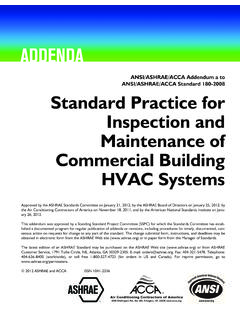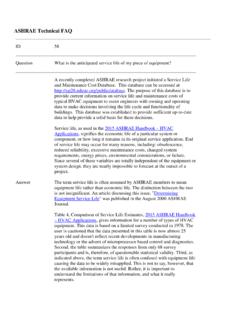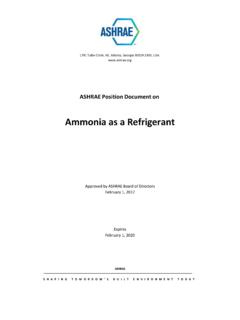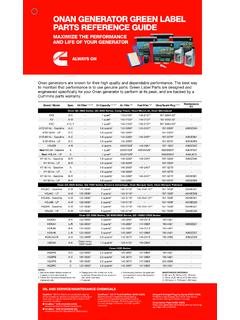Transcription of ASHRAE Technical FAQ
1 ASHRAE Technical FAQ ID 35 Question What is the allowable level of carbon dioxide in an occupied space? Long Answer CO2 at very high concentrations ( greater than 5000 ppm) can pose a health risk. Refer to Appendix D, Summary of Selected Air Quality Guidelines in ASHRAE Standard , "Ventilation for Acceptable Indoor Air Quality". However, in most buildings, concentrations almost never rise to these levels. CO2 at the concentrations commonly found in buildings is not a direct health risk, but CO2 concentrations can be used as an indicator of occupant odors (odorous bioeffluents) and occupant acceptance of these odors.
2 At the activity levels found in typical office buildings, steady-state CO2 concentrations of about 700 ppm above outdoor air levels indicate an outdoor air ventilation rate of about L/s/person (15 cfm/person). Laboratory and field studies have shown that this rate of ventilation will dilute odors from human bioeffluents to levels that will satisfy a substantial majority (about 80%) of unadapted persons (visitors) in a space. CO2 concentrations in outdoor air typically range from 300 to 500 ppm. Thus indoor CO2 concentrations of 1000 to 1200 ppm in spaces housing sedentary people is an indicator that a substantial majority of visitors entering the space will be satisfied with respect to human bioeffluents (body odor).
3 Note however that CO2 concentration is not a good indicator of the concentration and occupant acceptance of other indoor contaminants, such as volatile organic compounds off-gassing from furnishings and building materials. Thus CO2 concentration is not a reliable indicator of overall building air quality. A more detailed discussion of this relationship between CO2 concentrations and the perception of bioeffluents, as well as the use of indoor CO2 to estimate building ventilation rates, is contained in ASTM Standard D6245. Additional information on this subject can be found in ASHRAE Standard , "Ventilation for Acceptable Indoor Air Quality", plus ASHRAE BOD approved addenda.
4 This standard specifies outside air ventilation rates and maximum levels of indoor contaminants and other chemicals for acceptable indoor air quality. Copies of the standard, the latest addenda, and other publications may be purchased on-line at our website, or by calling 1-800-527-4723 in the USA and Canada or 1-404-636-8400 worldwide. Addenda to the standards may be downloaded for free. ASHRAE Pubs ASHRAE Standard , Appendix D. Topic References Indoor Air Contaminants Carbon Dioxide Cognizant ASHRAE Committees Refer to Organization 1 TC ASTM 2 SSPC 3 4 5
